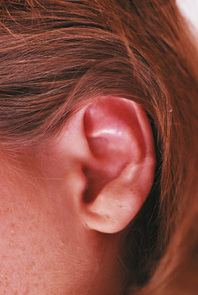FIRE SAFETY for the DEAF or HARD-of-HEARING
Smoke alarms save lives. But those who are deaf or hard of hearing cannot depend on the sound of the regular alarm to alert them to a fire. There are now a variety of smoke alarms on the market that combine sound and strobe lights to alert those with limited hearing that there is a fire in the home.
Facts & Figures
Source: NFPA's U.S. Experience With Smoke Alarms and Other Fire Detection/Alarm Equipment report and national estimates reported to U.S. municipal fire departments based on NFIRS and NFPA survey.
Safety tips
- Information on where to purchase smoke alarms(PDF, 208 KB) for people who can?t rely on the sound of a conventional alarm.
- NFPA's directory of national organizations serving people who are deaf or hard of hearing(PDF, 158 KB).
Facts & Figures
- Two-fifths of reported home fires occur in the small number of homes with no smoke alarms. As of 2004, 24 of every 25 (96%) U.S. homes with telephones had at least one smoke alarm. However, four of every ten home fires reported to U.S. fire departments still occurred in the now small share of homes without these devices. In one-quarter of reported fires in smoke alarm-equipped homes, the devices didn't work.
- Smoke alarm failures usually result from missing, disconnected, or dead batteries. When smoke alarms don't work, it is usually because the batteries are missing, disconnected or dead. People are most likely to remove or disconnect batteries because of nuisance activations. Smoke alarms should be tested every month to ensure the batteries and the units themselves are still working. Replaceable batteries should be replaced in accordance with the manufacturer's instructions, at least once every year.
Source: NFPA's U.S. Experience With Smoke Alarms and Other Fire Detection/Alarm Equipment report and national estimates reported to U.S. municipal fire departments based on NFIRS and NFPA survey.
Safety tips
- Consider installing a smoke alarm that uses a flashing light, vibration and/or sound to alert people to a fire emergency. The majority of fatal fires occur when people are sleeping, and because smoke can put people into a deeper sleep, it is important to have the necessary early warning of a fire to ensure that they wake up.
- Be sure that the smoke alarm you buy carries the label of an independent testing laboratory.
- Keep a communications device nearby. If you use a TTY/TTD device, place it close to the bed so that communication with emergency personnel is possible should fire or smoke trap you in your room.

